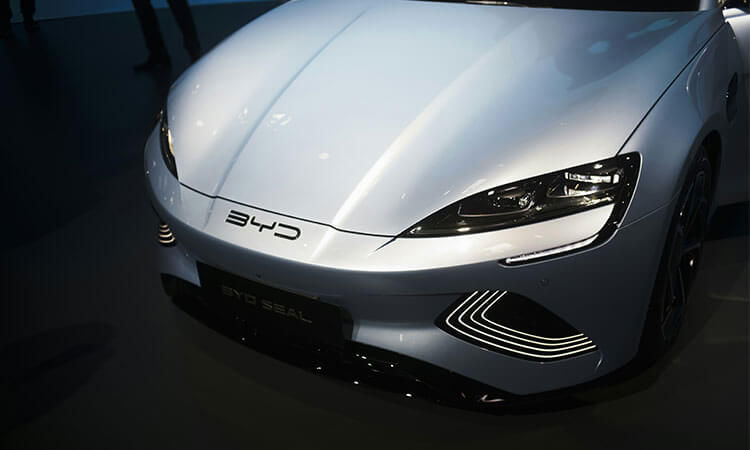Chinese automaker BYD has edged past Tesla to become Europe’s top-selling battery electric vehicle (BEV) brand in April, marking a milestone moment in the increasingly competitive EV market across the continent.
According to figures released by market intelligence firm Jato Dynamics, BYD delivered 7,231 BEVs in April—just ahead of Tesla, which sold 7,165 vehicles. While the margin is slim, the shift is significant: it’s the first time BYD has overtaken Tesla in monthly BEV sales in Europe.
BYD’s April sales reflect a staggering 169% year-on-year growth, while Tesla experienced a sharp 49% decline. The data covers registrations from 28 European countries and highlights a growing consumer appetite for affordable, high-tech EV alternatives—especially those manufactured by Chinese firms.
“This isn’t just about numbers,” said Felipe Munoz, a global analyst at Jato Dynamics. “It signals a structural change in the European electric vehicle landscape. Tesla has dominated this space for years, and BYD only began its broader European rollout in late 2022.”
The overall BEV market in Europe also saw strong growth, with electric vehicles accounting for 17% of the 1.1 million new cars registered in April—up from 13.4% a year ago. Plug-in hybrid vehicles (PHEVs) also gained ground, climbing to 9% of total sales compared to 6.9% last April.
Chinese automakers were a driving force behind this growth. Despite the European Union’s imposition of steep tariffs—some reaching 45.3%—on imported Chinese BEVs, brands from China posted a 59% year-on-year rise in sales, reaching nearly 15,300 units in April. By comparison, automakers from Europe, Japan, South Korea, and the U.S. registered a combined 26% increase.
Chinese firms have responded to trade restrictions by pivoting toward PHEVs, which are not subject to the same EU tariffs. Sales of Chinese plug-in hybrids soared 546% year-on-year in April to 9,649 units, capturing nearly 10% of the EU’s PHEV market.
Companies like BYD and Chery have significantly ramped up hybrid offerings since the EU introduced provisional tariffs in mid-2024. BYD, for instance, sold 3,269 PHEVs in March—up from virtually zero just months prior—according to research firm Rho Motion. Chery registered 757 units in the same month.
“Faced with tariff pressures, Chinese EV brands are tactically shifting their focus to hybrid powertrains to sustain momentum in Europe,” Rho Motion noted in a recent report.
Meanwhile, it remains unclear whether European regulators will extend tariffs to include plug-in hybrids, a move that could again shift market dynamics. Ongoing negotiations between EU and Chinese officials may lead to new pricing frameworks or a potential compromise on levies, including discussions of setting minimum price thresholds for Chinese EVs sold in Europe.
To further counter the impact of tariffs and secure long-term access to the European market, Chinese manufacturers are investing heavily in local production. BYD’s first European assembly plant, located in Hungary, is expected to begin operations later this year. The facility will help reduce exposure to import duties and better position the brand for sustained expansion.
In addition to manufacturing, BYD plans to strengthen its regional presence by establishing a European headquarters and a dedicated R&D center in Hungary, company chairman and CEO Wang Chuanfu announced this week.
As the race for EV dominance intensifies, April’s numbers show that BYD’s blend of pricing strategy, product diversity, and rapid market adaptation is resonating with European consumers, signaling a changing tide in the continent’s automotive future.







